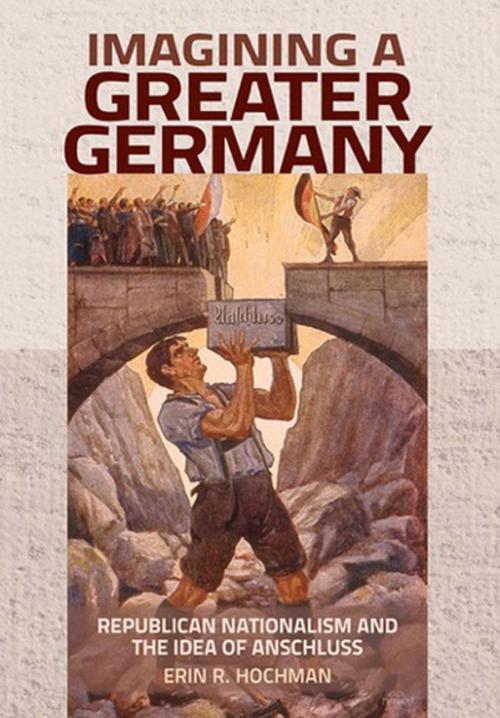Imagining a Greater Germany
Republican Nationalism and the Idea of Anschluss
Nonfiction, History, Germany, Social & Cultural Studies, Political Science| Author: | Erin R. Hochman | ISBN: | 9781501706615 |
| Publisher: | Cornell University Press | Publication: | October 4, 2016 |
| Imprint: | Cornell University Press | Language: | English |
| Author: | Erin R. Hochman |
| ISBN: | 9781501706615 |
| Publisher: | Cornell University Press |
| Publication: | October 4, 2016 |
| Imprint: | Cornell University Press |
| Language: | English |
In Imagining a Greater Germany, Erin R. Hochman offers a fresh approach to the questions of state- and nation-building in interwar Central Europe. Ever since Hitler annexed his native Austria to Germany in 1938, the term "Anschluss" has been linked to Nazi expansionism. The legacy of Nazism has cast a long shadow not only over the idea of the union of German-speaking lands but also over German nationalism in general. Due to the horrors unleashed by the Third Reich, German nationalism has seemed virulently exclusionary, and Anschluss inherently antidemocratic.However, as Hochman makes clear, nationalism and the desire to redraw Germany's boundaries were not solely the prerogatives of the political right. Focusing on the supporters of the embattled Weimar and First Austrian Republics, she argues that support for an Anschluss and belief in the großdeutsch idea (the historical notion that Germany should include Austria) were central to republicans’ persistent attempts to legitimize democracy. With appeals to a großdeutsch tradition, republicans fiercely contested their opponents’ claims that democracy and Germany, socialism and nationalism, Jew and German, were mutually exclusive categories. They aimed at nothing less than creating their own form of nationalism, one that stood in direct opposition to the destructive visions of the political right. By challenging the oft-cited distinction between "good" civic and "bad" ethnic nationalisms and drawing attention to the energetic efforts of republicans to create a cross-border partnership to defend democracy, Hochman emphasizes that the triumph of Nazi ideas about nationalism and politics was far from inevitable.
In Imagining a Greater Germany, Erin R. Hochman offers a fresh approach to the questions of state- and nation-building in interwar Central Europe. Ever since Hitler annexed his native Austria to Germany in 1938, the term "Anschluss" has been linked to Nazi expansionism. The legacy of Nazism has cast a long shadow not only over the idea of the union of German-speaking lands but also over German nationalism in general. Due to the horrors unleashed by the Third Reich, German nationalism has seemed virulently exclusionary, and Anschluss inherently antidemocratic.However, as Hochman makes clear, nationalism and the desire to redraw Germany's boundaries were not solely the prerogatives of the political right. Focusing on the supporters of the embattled Weimar and First Austrian Republics, she argues that support for an Anschluss and belief in the großdeutsch idea (the historical notion that Germany should include Austria) were central to republicans’ persistent attempts to legitimize democracy. With appeals to a großdeutsch tradition, republicans fiercely contested their opponents’ claims that democracy and Germany, socialism and nationalism, Jew and German, were mutually exclusive categories. They aimed at nothing less than creating their own form of nationalism, one that stood in direct opposition to the destructive visions of the political right. By challenging the oft-cited distinction between "good" civic and "bad" ethnic nationalisms and drawing attention to the energetic efforts of republicans to create a cross-border partnership to defend democracy, Hochman emphasizes that the triumph of Nazi ideas about nationalism and politics was far from inevitable.















